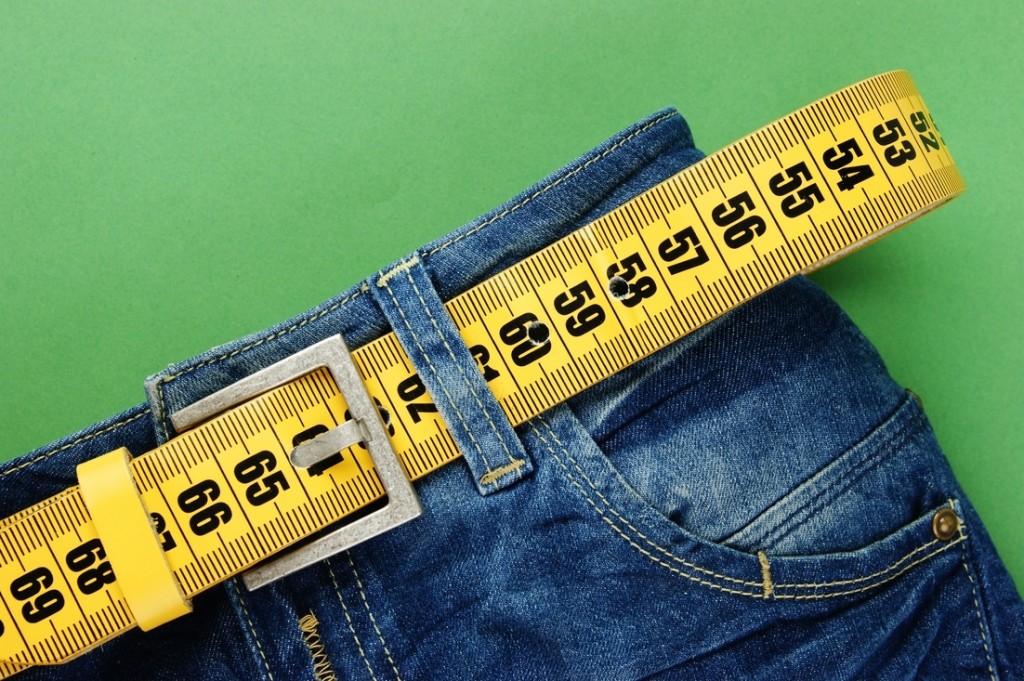If you’re overweight, you’re not alone. Up to a third of all Americans are considered to be overweight. It turns out that it makes a difference where the fat is located in the body. For those who are overweight and who have fat in the buttock and thigh area, the risk for heart disease is less than if you’re overweight and have fat located in the belly area.
So how does belly fat affect your heart? The reason is when compared to fat in the thighs and buttocks the fat located around the waist (belly fat) isn’t only located in the subcutaneous layer of the body but is also found in the visceral part of your body—where the internal organs are located. Fat can build up around the heart, leading to heart disease.
According to a national health survey (published in the Annals of Internal Medicine) following more than 15,000 Americans for an average of 14 years, those who were of a normal weight and who had abdominal obesity (belly fat) had an increased chance of dying from heart disease. In fact, the rate of death for any reason was increased in those who had more belly fat.
Does Belly Fat Affect Your Heart Only?
Even if you aren’t overweight, if you carry extra weight around your middle (which is belly fat), you have a greater risk of heart disease. Besides heart disease, having belly fat increases the chances that you’ll have other diseases as well, including the following:
- Hypertension
- Obstructive sleep apnea
- Colon cancer
- Type 2 diabetes
- Insulin resistance
- Early death
Belly Fat is Linked to Heredity
The amount you weigh is usually associated with your daily caloric intake and how much exercise you get to burn off those calories. If you tend to eat more calories than you do burn, you’re more likely to become overweight or obese, with an increased likelihood of having belly fat.
Heredity may be associated with belly fat. There seems to be genes that are associated with your metabolism as well as where the fat you make is stored. If you have a first-degree relative (parent, sibling, or child) who is overweight, you’re more likely to be overweight as well. Getting older is also associated with extra belly fat as your metabolism is slower as you age.
The good news is that, even if you have a genetic reason for having belly fat or are getting on in years, eating a healthy low-calorie diet and getting plenty of exercise can help prevent belly fat from causing heart disease and other complications of having too much belly fat.
Alcohol’s Role in Belly Fat
You’ve heard about beer bellies, right. Perhaps you’ve heard that beer bellies are associated with heart disease. If so, you’re on the right track. Those who drink excess calories by taking in too much alcohol have an increased risk of belly fat, which also increases the chances of developing heart disease.
While alcohol intake has been associated with an increase in belly fat, if you drink in moderation and drink mostly wine, you may not develop an increased risk for heart disease and will have less fat around the waist. Red wine especially, has been found to be cardio protective, if you drink it in moderation.
Do You Have Too Much Belly Fat?
You can find out if you have belly fat by checking the size of your waist. Use a tape measure and measure the thickest area above the level of your hips. Men who have waist measurements of 40 inches or more have an increased risk of having belly fat and its complication, heart disease.
Women who have waste measurements of greater than 35 inches also have an increased risk for belly fat and heart disease.
Free Report: Why You Can't Shift Your Belly FatHow Do You Decrease Your Risk of Belly Fat and Heart Disease?
It turns out that there are things you can do that will decease your chances of having belly fat and its secondary complications. Things that can help prevent heart disease and belly fat include:
- Drink More Water. Instead of drinking sugary beverages, switch to diet sodas or, better yet, plain water.
- Increase Physical Activity. Exercising moderately for at least 150 minutes per week will decrease your chances of having belly fat and will secondarily decrease your risk for heart disease.
- Eat Smaller Portions. Because restaurant food usually comes in large portions, eat half of whatever you are served and bring leftovers home for the next day. Keep your portion sizes to recommended portions when eating at home.
- Eat Healthier Foods. Eating fruits, whole grains, and vegetables will decrease your risk of belly fat and heart disease. If you decide to eat meat, make sure the meat you choose is lean meat, such as turkey, white meat chicken, and eat plenty of lean fish. Stay away from saturated fats, which increase the risk of belly fat.
Ready To Stop The Harmful Effects of Belly Fat?
By changing your health habits, you can decrease the chances of having belly fat, including the most dangerous kind of belly fat (visceral fat) and will decrease your chances for belly fat to affect your heart. But are you frustrated because you feel like you’ve been doing everything right, but you’re still not able to banish belly fat?
Maybe you’re eating healthy foods and going to the gym, however, the change in diet and exercise isn’t making your midsection smaller. That’s the bad news. The good news is that it’s possible to lose belly fat even though you’re not having success right now. To learn more, download my free report, Why You Can’t Shift Your Belly Fat and stop the harmful effects of this excess fat.



